Arts and Culture 31 October 2014
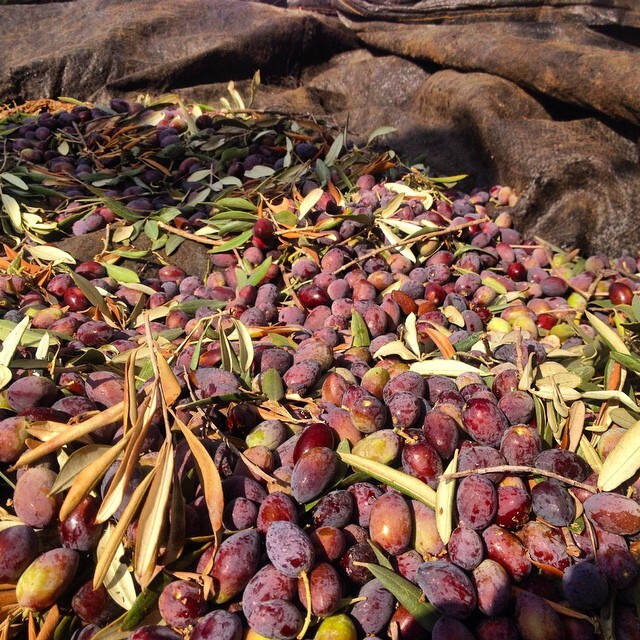
“My first catch of the day in Izbet Salman,” says Instagram user @Zalameh.
In Palestine, the month of October is synonymous with the annual olive harvest.
According to the United Nations monitoring group OCHA, nearly half of all cultivated land in the occupied West Bank and Gaza Strip is planted with olive trees, and the olive oil industry constitutes 25 percent of the territories’ agricultural income.
Though the olive harvest is traditionally a festive time, the hostile presence of Israeli settlers who attack Palestinian farmers means that it has also become one of violence.
From 2006 to the end of September 2014, OCHA recorded 2,300 settler-related incidents of violence against Palestinians or their property in the West Bank, including East Jerusalem.
And from 2009 through the end of August this year, “nearly 50,000 fruit-bearing trees, mainly olive trees, were destroyed or damaged in such incidents,” according to the agency.
Meanwhile, Israel’s wall in the West Bank, and its regime of closure, checkpoints and other forms of movement restrictions, prevent farmers from accessing their land.
Tradition threatened
Instagram user Zalameh, also known to The Electronic Intifada’s readers as @BDS4Justice on Twitter, has been documenting this year’s olive harvest. His photos and video give an evocative look at the practice which is threatened by Israeli land confiscation and military and settler violence.
Zalameh explained to The Electronic Intifada that he spent two days in Izbet Salman, south of Qalqiliya, the West Bank town which has become completely enclosed by Israel’s wall. Near the boundary with present-day Israel, Izbet Salman “is very close to the Palestinian villages of ‘48 [inside present-day Israel] Kafr Qassem, Kafr Bara and Jaljulia.”
“We can hear the call to prayer coming from these villages across the wall,” he added. “People from Izbet Salman are married to people from these villages; these marriages happened before Israel’s family unification laws that prohibited those marriages after the start of the second intifada [in September 2000].
“A large proportion of the village works inside Israel, not all legally; they sneak through the wall, which seems effortless although not without risks (this also demolishes Israel’s security claims – the wall is porous – as opposed to the untold goal of land grabs).”
Reputation for quality
Zalameh also spent two days picking olives in the Bethlehem-area village of Beit Jala.
“Beit Jala olive oil has a reputation for quality across all of Palestine so I decided to go check the pressing there,” he said. “The press I visited uses the traditional cold press method, although modernized with heavy machinery.”
“There are cooperatives that commercialize olive oil for export, but the ones I worked on belong to families and family members work on the land together and they split the fruits of the labor among the extended family,” he added.
Regarding the olive harvest’s social significance, Zalameh explained: “What I love about the olive harvest is the teamwork, the conversations while we pick olives, eating food outdoors and then eating the olives we picked and the of course the olive oil; somehow it tastes different when we know we picked the olives.
“I asked the villagers of Izbet Salman what happens to the olive trees in the settlements just across the wall. Do Israelis gather around the trees like us, to pick the olives, during the harvest period? They said no, the olives, which belong to Palestinians, will rot.
“For me this said it all. Generations of Israelis came here as foreign settlers; they don’t know the land as well as Palestinians do, they see it only as an object of conquest and colonization. The olive tree is thus foreign to them and this is why it is so easy for them to uproot so many trees. On the other hand, the olive tree is part of Palestinian identity, culture and folklore.”
The following photographs and videos are posted with permission from @Zalameh. Captions are edited versions of the original Instagram posts.

After harvesting the olives, they are sieved. The bigger ones are put on the side for pickling and the rest goes to the press.
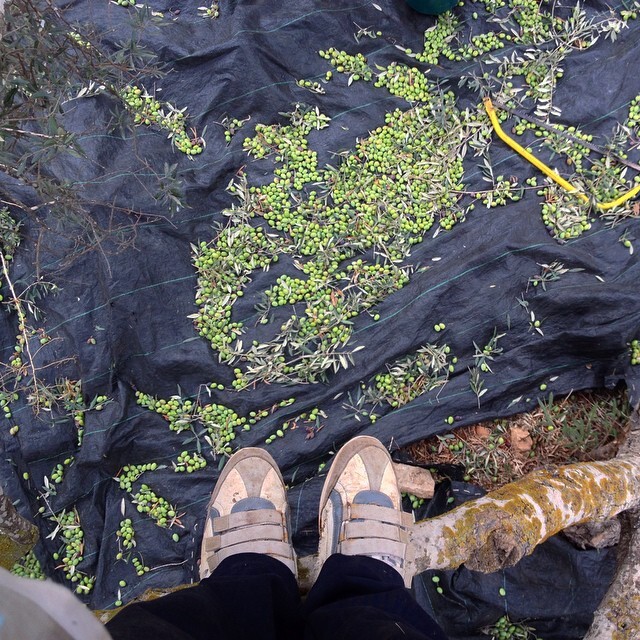
The fruits of my labor.
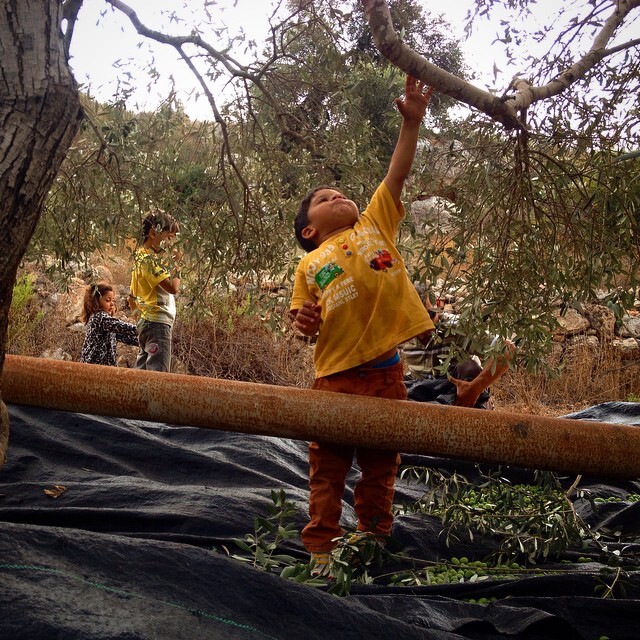

First morning break at 9am for a breakfast of hummus and ful to give us strentgh for the day. They say this is the best hummus and ful in Palestine from Qalqilya; I liked it.

Our team worked through ten trees today, took us eleven hours, it’s a lot of work. The olive harvest season lasts until early November. I wanted to go the press to get some fresh olive oil but had to leave, inshallah next week. The olive harvest is a dangerous activity in Palestine; Israeli settlers run amok attacking Palestinians, making support for the farmers all the more important. You can buy fair trade organic Palestinian olive oil, exported worldwide, from an ethical supplier near you.
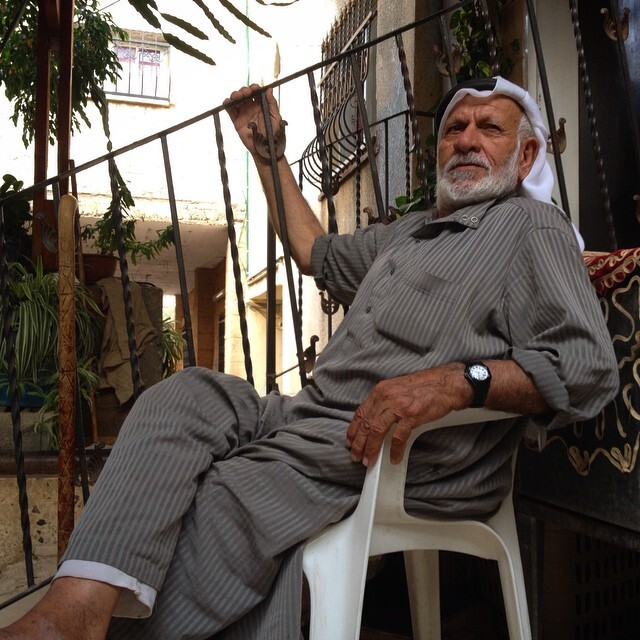
Hajj Mahmoud, 84 years old, the owner of the land I harvested today. Loved talking to him so much, amazing sense of humor. May God give him a long life with health.
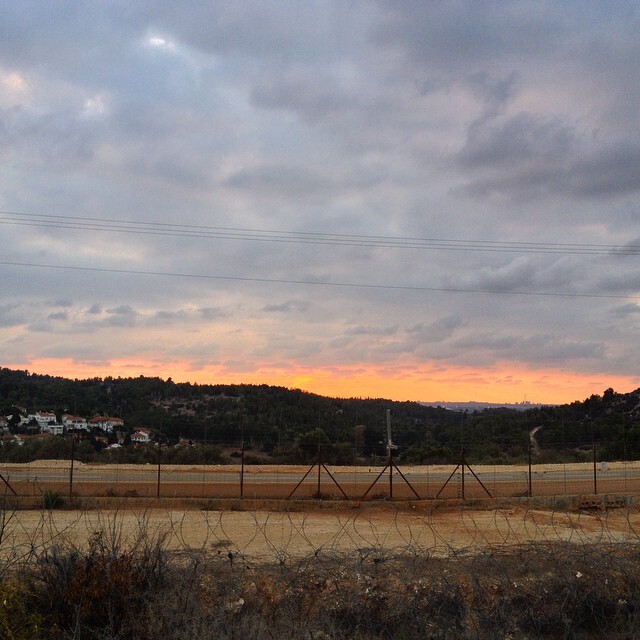
Izbet Salman lost much of its land to the wall (pictured) and the Israeli colony of Oranit. The wall in this section is an electrified double fence. A significant proportion of the village’s population sneaks across regularly to seek work, proving how ineffective this wall really is and that its main purpose is a land grab. The village still maintains close ties with the Palestinian villages of Jaljulia, Kafr Qassem and Kafr Bara, in the ‘48 areas (now Israel), where extended branches of their families live.
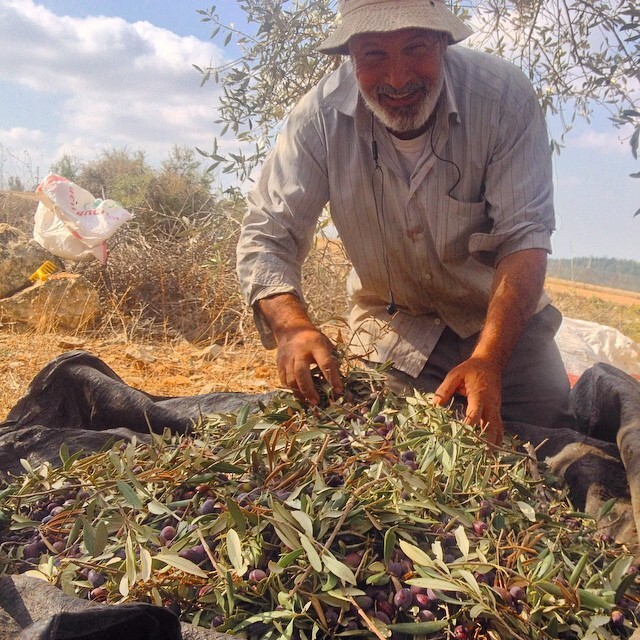
Thirty percent of the weight of the olives becomes olive oil. This tree gave us about twelve liters.
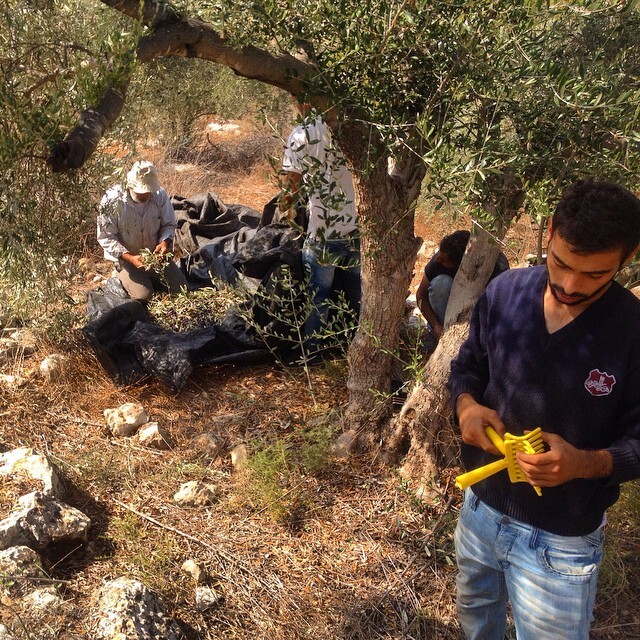

Climbing the tree for the more difficult olives.

This morning I am harvesting olives in the middle of Beit Jala — covering this beautiful field belonging to a friend of mine. Another day of hard work, healthy conversations, good food and laughter.
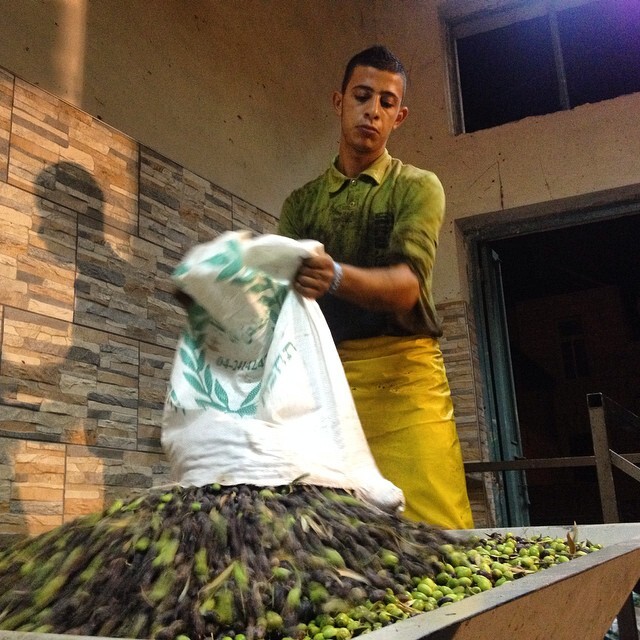
At the olive press, watching the process of turning olives into olive oil — this is pretty epic. Couldn’t be in a better place; Beit Jala olive oil is known to be among the best in Palestine.
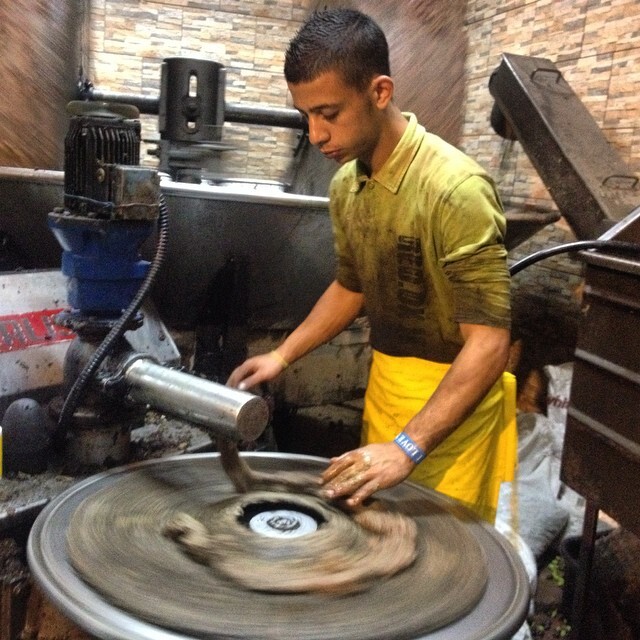
Lining up the olive paste in these moving rods which are then stacked over each other and pressed to squeeze out the olive oil. Still in concentrated form before it is further refined. Making olive oil is a dirty process and so little comes out of so much, but the end result is liquid gold. It has a lesson in it.

Freshly pressed olive oil for breakfast this morning: sabah al-zaytoun.






Comments
comment
Permalink Aleem Ali replied on
Great job, may God give you long life to continue your work.